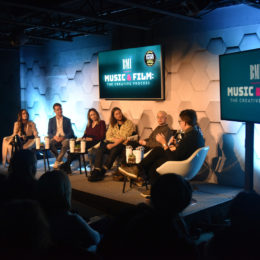Funk music legend George Clinton has won a defamation lawsuit filed against him in Los Angeles Superior Court. Clinton is a musician, singer, songwriter and music producer. His group, Parliament-Funkadelic, created a unique form of funk music during the 1970’s. Together with James Brown and Sly Stone, they are considered the originators of funk music. Clinton has been inducted into the Rock and Roll Hall of Fame.
The recent case arose out of Clinton’s 2014 autobiography, Brothas Be, Yo Like George, Ain’t That Funkin’ Kinda Hard On You?: A Memoir. Music producer and record label owner Armen Boladian claimed the book defamed him. Boladian’s attorney argued that the book stated that Boladian had “robbed” songs from his client, “fabricated documents” and “fraudulently backdated and altered agreements.”
Defamation consists of both libel and slander. The elements of a defamation claim are:
Publication of a statement of fact.
• that is false,
• unprivileged,
•has a natural tendency to injure or which causes “special damages,” and
•Defendant’s fault in publishing the statement amounted to at least negligence.
After a two-week trial in Los Angeles, the jury held that 20 statements in Clinton’s book did not constitute defamation because they were either true, just matters of opinion and not made with malice. Clinton’s attorney Jordan Susman stated:
“This verdict is a win for George and the First Amendment. No one should be prohibited from sharing their life story, from their point of view, simply because it may paint someone else in a less than flattering light. Especially, as the jury held, when George had no reason to seriously doubt the truth of his statements.”
After the verdict, Clinton said:
“I am grateful and overjoyed that a jury of my peers agreed that there is nothing defamatory in speaking my mind and sharing my life story. I will continue to speak truth to power and to fight against the forces that have separated so many songwriters from their music. Investigate. Interrogate, Litigate. Unseal. Reveal. If we don’t get this right, then they win.”
Boladian and Clinton have a long history of litigation against each other. Clinton has accused Boladian of stealing some of his most famous songs, such as: “Atomic Dog,” “One Nation Under a Groove” and “We Want the Funk (Tear the Roof Off)” by altering documents and failing to pay recording artists.
In 1994, a federal court judge held that Clinton did not sign a document that Boladian’s company used to file for copyright protection. Boladian admitted in a 1995 declaration that he had changed the language of a written agreement from 1982 with Clinton and added some songs to the agreement. Boladian said he added the songs pursuant to a power of attorney. Clinton’s attorney, in the recent defamation case, told the jury about the 1994 ruling and the declaration as well as affidavits from some former employees of Boladian confirming that he had changed agreements after they had been signed by artists, including Clinton.














